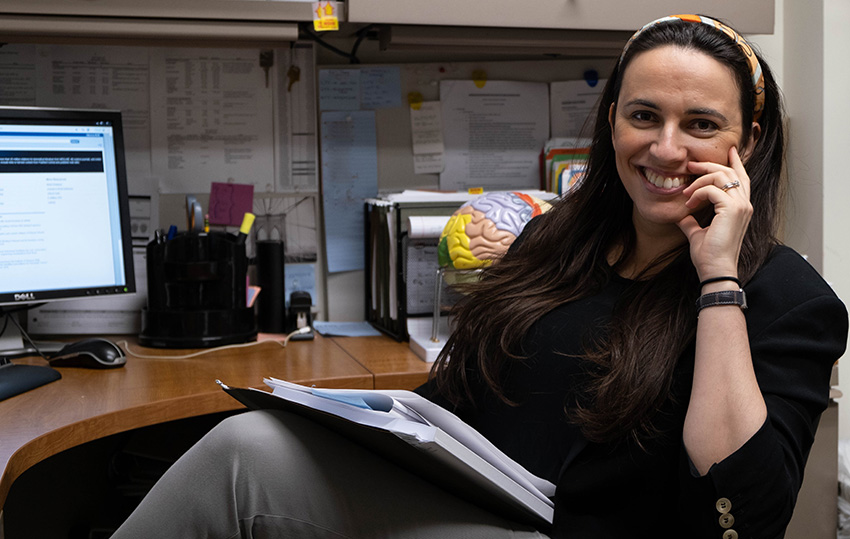Graduate research: Sara Costi on commencing her DPhil in Biomedical and Clinical Sciences
To mark Women’s History Month Exeter College news intern Costi Levy has been speaking to Exeter students and alumnae about their work. Here Wellcome Trust doctoral fellow Sara Costi (2020, DPhil in Biomedical and Clinical Sciences) pays tribute to a tight-knit female environment during her medical training.

Sara Costi moved to Oxford in the midst of the pandemic to start her DPhil. She trained as a doctor at the University of Parma, where she graduated with First Class Honours cum laude. She completed her Residency in Psychiatry at the University, then spent five years at the Icahn School of Medicine at Mount Sinai. ‘I stayed there for quite some time, but I felt like my training wasn’t complete,’ says Sara, explaining why she decided to move to Oxford.
‘When you work in psychiatry, there isn’t much medication, and lots of it takes some time to exert any therapeutic effect,’ Sara notes. Patients often experience side effects to their medication before feeling any benefit. Ketamine, on the other hand, is a fast-acting drug. The speed at which its therapeutic benefits can be observed may be a help both to patients and researchers in the lab. Investigation into the use of ketamine to treat depression and anxiety disorder is still at a relatively early stage, and much of the research takes place at Mount Sinai. As an Associate Researcher at the Mount Sinai Depression and Anxiety Centre for Discovery and Treatment (DAC), Sara was able to continue her investigation into the use of ketamine through a multi-disciplinary approach, with much more funding. Her research in Oxford is in its early stages: ‘I’m in the process of writing my ethics – hopefully I will submit that soon.’
Sara emphasises that, throughout her education and research as a psychiatrist, she has been surrounded by positive female figures. She has had at least one female supervisor at every stage of her training, and her Residency training group was made up of five women. ‘We got along very well,’ she says. ‘They were very supportive of me being abroad, and of others being on maternity leave, even though that meant more work for them … night shifts and day shifts.’
‘Has being a woman given me some special insight, or a different way of looking at things?’, Sara wonders. ‘Possibly. But so does being Italian. It’s part of my identity, my experience and my feelings. I cannot disentangle it’.
